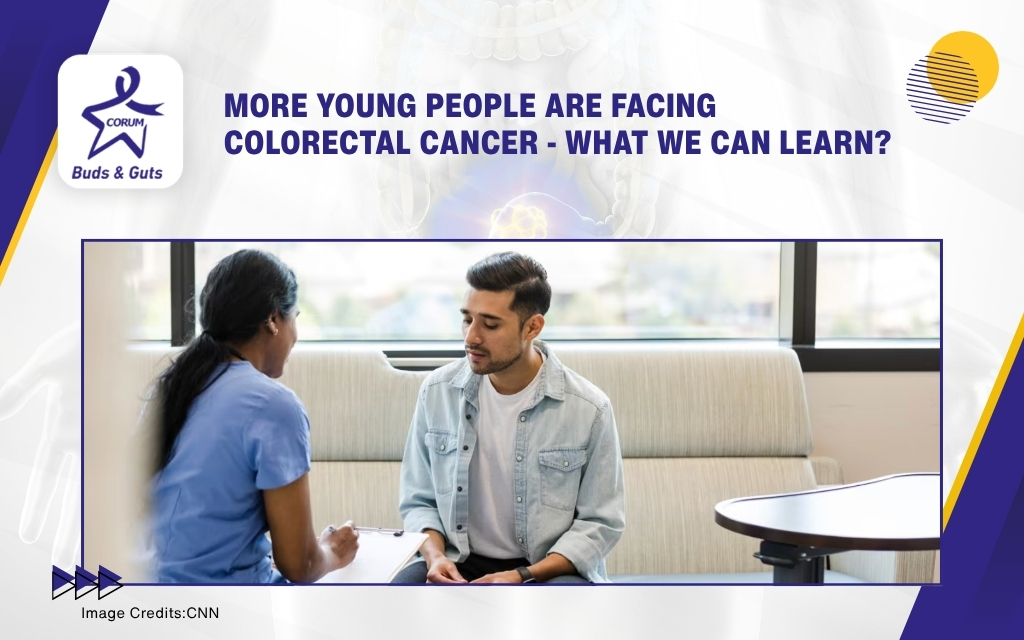
Acknowledgment: This summary is based on the CNN Health article “More young people are getting early-onset colorectal cancer: 5 things to know” which features insights from Dr. Kimmie Ng of Dana-Farber Cancer Institute and Dr. Sanjay Gupta, CNN’s Chief Medical Correspondent. Full credit to CNN and the experts cited in the original piece.
Colorectal cancer has long been seen as a disease of older adults, yet doctors are now seeing more cases in people under 50. Dr. Kimmie Ng, a gastrointestinal oncologist and founding director of the Young-Onset Colorectal Cancer Center at Dana-Farber Cancer Institute, told CNN’s Dr. Sanjay Gupta that she has cared for many young, otherwise healthy patients who were diagnosed at advanced stages. Cases in younger adults have been rising by about 2% a year since the mid-1990s, in both men and women, and across many regions.
Even so, Dr. Ng notes that the absolute number of cases in younger people remains relatively small. Awareness, timely attention to symptoms, and screening make a real difference.
Why Screening Matters
Screening has helped reduce overall colorectal cancer cases and deaths, but the same gains have not been seen in those under 50. In 2021, the recommended starting age for average-risk adults was lowered from 50 to 45. Dr. Ng does not expect a further universal drop soon; instead, she emphasises raising screening uptake among those already eligible and identifying who might need earlier checks based on risk.
Know the Early Signs
The most common early symptom in younger adults is blood in the stool, especially when it is mixed into the stool. Other signals can include unintentional weight loss, new constipation or diarrhoea, thinner stools, abdominal pain, and fatigue. These symptoms can be hard to talk about but bringing them to a doctor’s attention is essential.
What Might Be Driving the Rise
Genetic changes alone can’t explain the rapid increase across generations. Dr. Ng points to environmental factors as likely contributors. Patterns such as obesity, sedentary behaviour, and certain dietary habits are being studied, yet many young patients do not fit those patterns, underscoring that more research is needed. Possible exposures (including effects early in life that may shape the microbiome) are still under investigation.
Genetics and Family History
Most early-onset cases are not inherited. Still, Dr. Ng recommends genetic testing for anyone diagnosed with cancer at a young age and stresses the value of knowing one’s family history, which can guide earlier screening for those at higher risk.
Being Young: Strengths and Challenges
Younger patients may tolerate surgery, chemotherapy, and radiation better, but that does not always translate to better survival, and the very youngest (under 35) may face tougher outcomes. This makes prompt evaluation and appropriate care even more important.
A Simple, Hopeful Takeaway
Screening saves lives, and honest conversations help people get care sooner. Dr. Ng encourages normalising two straightforward questions in clinics and at home: “Have you noticed blood in your stool?” and “Have your bowel habits changed?” Early attention to symptoms, combined with on-time screening, gives patients the best chance for effective treatment.
Conclusion
While the rise in early-onset colorectal cancer is concerning, experts remind us that awareness and action can make a real difference. Recognising early symptoms, following recommended screening guidelines, and talking openly about digestive health are practical steps that protect lives. This message, shared through CNN’s report and Dr. Ng’s insights, reinforces a hopeful truth – colorectal cancer is preventable, treatable, and often beatable when detected early.
Join CORUM in Raising Awareness and Saving Lives
CORUM is Malaysia’s official voice for colorectal cancer patients and survivors. The organisation focuses on education, early detection, peer support, and community engagement to improve the lives of those affected by colorectal cancer. Through hospital-based support, awareness campaigns, and collaboration with healthcare professionals, CORUM strives to ensure that no one faces this journey alone.
